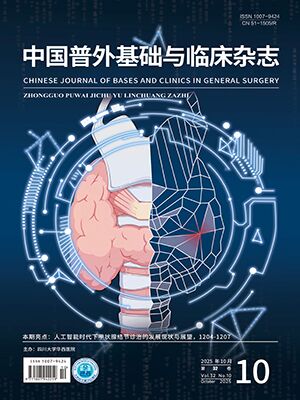| 1. |
Manterola C, Otzen T. Cholangiohydatidosis: an infrequent cause of obstructive jaundice and acute cholangitis. Ann Hepatol, 2017, 16(3): 436-441.
|
| 2. |
Zhou B, Weng G, Huang Z, et al. Arctiin prevents LPS-induced acute lung injury via inhibition of PI3K/AKT signaling pathway in mice. Inflammation, 2018, 41(6): 2129-2135.
|
| 3. |
Liu F, Huang X, He JJ, et al. Plantamajoside attenuates inflammatory response in LPS-stimulated human gingival fibroblasts by inhibiting PI3K/AKT signaling pathway. Microb Pathog, 2019, 127: 208-211.
|
| 4. |
Chang M, Guo F, Zhou Z, et al. HBP induces the expression of monocyte chemoattractant protein-1 via the FAK/PI3K/AKT and p38 MAPK/NF-κB pathways in vascular endothelial cells. Cell Signal, 2018, 43: 85-94.
|
| 5. |
Liu W, Liu B, Liu S, et al. Sphingosine-1-phosphate receptor 2 mediates endothelial cells dysfunction by PI3K-Akt pathway under high glucose condition. Eur J Pharmacol, 2016, 776: 19-25.
|
| 6. |
Cheng Y, Tian Y, Xia J, et al. The role of PTEN in regulation of hepatic macrophages activation and function in progression and reversal of liver fibrosis. Toxicol Appl Pharmacol, 2017, 317: 51-62.
|
| 7. |
Roof AK, Gutierrez-Hartmann A. Consider the context: Ras/ERK and PI3K/AKT/mTOR signaling outcomes are pituitary cell type-specific. Mol Cell Endocrinol, 2018, 463: 87-96.
|
| 8. |
Yang Q, Jiang W, Hou P. Emerging role of PI3K/AKT in tumor-related epigenetic regulation. Semin Cancer Biol, 2019 Apr 2. pii: S1044-579X(18)30136-6.
|
| 9. |
Xie Y, Shi X, Sheng K, et al. PI3K/Akt signaling transduction pathway, erythropoiesis and glycolysis in hypoxia (Review). Mol Med Rep, 2019, 19(2): 783-791.
|
| 10. |
Chang MC, Lee JJ, Chen YJ, et al. Lysophosphatidylcholine induces cytotoxicity/apoptosis and IL-8 production of human endothelial cells: Related mechanisms. Oncotarget, 2017, 8(63): 106177-106189.
|
| 11. |
Zheng W, Feng Z, Lou Y, et al. Silibinin protects against osteoarthritis through inhibiting the inflammatory response and cartilage matrix degradation in vitro and in vivo. Oncotarget, 2017, 8(59): 99649-99665.
|
| 12. |
Liu J, Li J, Tian P, et al. H2S attenuates sepsis-induced cardiac dysfunction via a PI3K/Akt-dependent mechanism. Exp Ther Med, 2019, 17(5): 4064-4072.
|
| 13. |
Shearn CT, Orlicky DJ, Petersen DR. Dysregulation of antioxidant responses in patients diagnosed with concomitant primary sclerosing cholangitis/inflammatory bowel disease. Exp Mol Pathol, 2018, 104(1): 1-8.
|
| 14. |
Wang Y, Aoki H, Yang J, et al. The role of sphingosine 1-phosphate receptor 2 in bile-acid-induced cholangiocyte proliferation and cholestasis-induced liver injury in mice. Hepatology, 2017, 65(6): 2005-2018.
|
| 15. |
Hylemon PB, Takabe K, Dozmorov M, et al. Bile acids as global regulators of hepatic nutrient metabolism. Liver Res, 2017, 1(1): 10-16.
|
| 16. |
Nagahashi M, Takabe K, Liu R, et al. Conjugated bile acid-activated S1P receptor 2 is a key regulator of sphingosine kinase 2 and hepatic gene expression. Hepatology, 2015, 61(4): 1216-1226.
|
| 17. |
Bryan AM, Del Poeta M. Sphingosine-1-phosphate receptors and innate immunity. Cell Microbiol, 2018, 20(5): e12836.
|
| 18. |
Campos LS, Rodriguez YI, Leopoldino AM, et al. Filamin a expression negatively regulates sphingosine-1-phosphate-induced NF-κB activation in melanoma cells by inhibition of Akt signaling. Mol Cell Biol, 2015, 36(2): 320-329.
|
| 19. |
Cui H, Okamoto Y, Yoshioka K, et al. Sphingosine-1-phosphate receptor 2 protects against anaphylactic shock through suppression of endothelial nitric oxide synthase in mice. J Allergy Clin Immunol, 2013, 132(5): 1205-1214.
|
| 20. |
Hsu LC, Reddy SV, Yilmaz Ö, et al. Sphingosine-1-phosphate receptor 2 controls podosome components induced by RANKL affecting osteoclastogenesis and bone resorption. Cells, 2019, 8(1): pii: E17.
|
| 21. |
Song F, Hou J, Chen Z, et al. Sphingosine-1-phosphate receptor 2 signaling promotes caspase-11-dependent macrophage pyroptosis and Worsens Escherichia coli sepsis outcome. Anesthesiology, 2018, 129(2): 311-320.
|
| 22. |
Wang E, He X, Zeng M. The role of S1P and the related signaling pathway in the development of tissue fibrosis. Front Pharmacol, 2019, 9: 1504.
|
| 23. |
Kageyama Y, Ikeda H, Watanabe N, et al. Antagonism of sphingosine 1-phosphate receptor 2 causes a selective reduction of portal vein pressure in bile duct-ligated rodents. Hepatology, 2012, 56(4): 1427-1438.
|
| 24. |
Yang L, Han Z, Tian L, et al. Sphingosine 1-phosphate receptor 2 and 3 mediate bone marrow-derived monocyte/macrophage motility in cholestatic liver injury in mice. Sci Rep, 2015, 5: 13423.
|
| 25. |
Xiao Y, Liu R, Li X, et al. Long noncoding RNA H19 contributes to cholangiocyte proliferation and cholestatic liver fibrosis in biliary atresia. Hepatology, 2019 May 7. doi: 10.1002/hep.30698.
|




